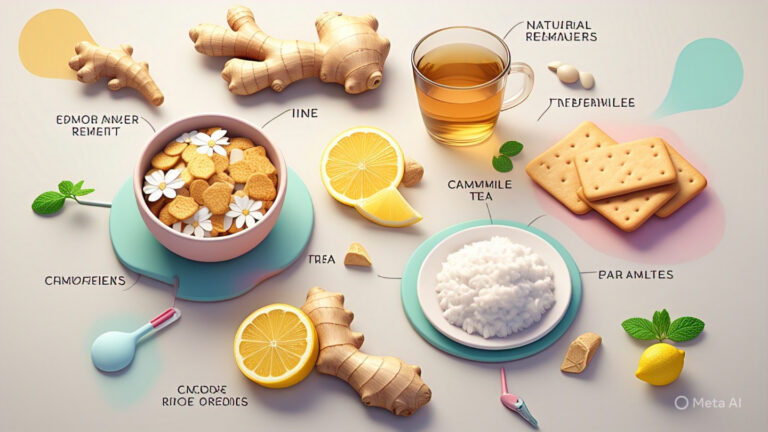Estimated reading time: 9 minutes
Key Takeaways
- Severe sore throats are often caused by infections and can be managed with natural remedies, but watch for red flag symptoms.
- Top evidence-based home remedies include saltwater gargles, honey, herbal teas, steam inhalation, and hydration.
- Honey, ginger, marshmallow root, and humidifiers are especially helpful for intense pain or dryness.
- Seek medical attention quickly if swallowing, breathing, or high fever are issues.
- Prevent future discomfort with better hygiene, hydration, and clean air.
- For more details on milder cases, see our Home Remedies for a Sore Throat guide.
Table of Contents
- 1. Introduction to Severe Sore Throats
- 2. Understanding Severe Sore Throats: Causes and Symptoms
- 3. Top 10 Evidence-Based Home Remedies for Severe Sore Throat
- 4. Safety Precautions and Best Practices for Home Remedies
- 5. When to Seek Medical Attention for a Severe Sore Throat
- 6. Prevention Tips to Avoid Future Severe Sore Throats
- 7. Frequently Asked Questions (FAQs) About Severe Sore Throat Remedies
1. Introduction to Severe Sore Throats
Dealing with a severe sore throat can drain your energy and patience. The sharp pain, the struggle to swallow, and the constant discomfort are challenges many face, but relief is within reach through nature’s gentle solutions. At WikiHomeRemedies, we understand how this affects your day, and we’re here to guide you with safe, research-backed home remedies tailored for intense cases.
A severe sore throat often brings more than just irritation—it’s marked by deep pain, trouble eating or drinking, and sometimes fever. These signs show it’s beyond a mild scratch. Our goal is to ease this burden with natural approaches, grounded in insights from trusted sources like the Mayo Clinic. Sore throats are common, with millions experiencing them yearly, often tied to colds or infections.
This guide walks you through understanding why your throat hurts so much, offers ten proven remedies, and highlights when to seek a doctor’s help. We’ll also share tips to prevent future pain. Think of this as your companion, helping you navigate discomfort with care and wisdom, ensuring you reclaim comfort naturally. For a broader perspective on milder cases and related treatments, see our Home Remedies for a Sore Throat guide.
2. Understanding Severe Sore Throats: Causes and Symptoms
When your throat feels like it’s on fire, knowing what’s behind it can point you toward relief. A severe sore throat isn’t just a nuisance; it often stems from specific triggers that amplify the pain. By pinpointing these causes and recognizing key symptoms, you’ll be better equipped to choose the right remedy or know when professional care is needed.
Many factors can lead to this level of discomfort. Viral infections, such as the flu or common cold, frequently irritate the throat, while bacterial issues like strep can escalate pain fast. Allergies, dry air, or even shouting too much might also play a role. According to the Centers for Disease Control and Prevention (CDC), infections are a leading reason for throat soreness, often spreading through close contact or shared spaces.
Symptoms can reveal how serious the issue is. Beyond a scratchy feeling, you might face intense burning, swollen glands, or even visible inflammation. Warning signs like high fever or trouble breathing suggest it’s not just a passing annoyance. Let’s dive deeper into what drives this pain and how to spot when it’s critical, as outlined by experts from the Mayo Clinic.
2.1 Common Causes of Severe Sore Throats
- Viral infections: Colds or flu often inflame throat tissues through immune responses.
- Bacterial infections: Strep throat, caused by Streptococcus, brings sharp pain and fever.
- Allergies: Pollen or dust can irritate, leading to persistent soreness over time.
- Environmental factors: Dry air or smoke exposure strips moisture, worsening discomfort.
2.2 Symptoms Indicating Severity
- Intense, unrelenting pain that makes swallowing nearly impossible.
- Swollen lymph nodes or visible redness at the throat’s back.
- White patches or pus, hinting at bacterial presence.
- Hoarseness lasting days or extreme difficulty speaking.
2.3 Red Flags: When It’s More Than Just a Sore Throat
- Fever above 101°F (38.3°C), signaling a deeper infection.
- Difficulty breathing or swallowing, risking airway issues.
- Rash or joint pain alongside soreness, pointing to systemic conditions.
- Blood in saliva or phlegm, a rare but serious concern.
Understanding these elements is your first step. With clarity on what’s causing the pain and how severe it might be, you’re ready to explore remedies that target relief, backed by trusted health insights from the National Institutes of Health (NIH). For additional depth on related throat inflammation and soothing techniques, visit our Home Remedies for Inflamed Throat.
3. Top 10 Evidence-Based Home Remedies for Severe Sore Throat
When a sore throat grips you with relentless pain, simple, natural solutions can offer a lifeline. Below, we’ve gathered ten remedies rooted in science and tradition, designed to ease severe symptoms. Each method comes with clear steps, benefits, and care tips, ensuring you apply them safely. Let’s walk through these options, inspired by findings from sources like Healthline and the Cleveland Clinic, to help you find comfort.
3.1 Saltwater Gargle
A saltwater gargle stands as a time-tested way to reduce throat swelling. By drawing out fluids from inflamed tissues, it also helps flush out bacteria. Studies, including those noted by WebMD, support its role in calming irritation.
- Mix half a teaspoon of salt in 8 ounces (240 ml) of warm water.
- Gargle for 30 seconds, then spit out; repeat 2-3 times daily.
- Don’t swallow the mix, and stop if it feels too harsh.
3.2 Honey and Warm Water/Lemon
Honey soothes with its thick texture and natural antibacterial traits. Paired with warm water and a splash of lemon, it coats the throat, easing pain. Research from the NIH highlights honey’s ability to fight microbes.
- Stir 1-2 tablespoons of honey into a cup of warm water.
- Add freshly squeezed lemon juice for extra vitamin C.
- Sip slowly; remember, honey isn’t safe for babies under one year.
If you can, opt for raw, organic honey. Its unprocessed nature often retains more healing properties to support your recovery.
3.3 Herbal Teas (Chamomile, Peppermint)
Chamomile and peppermint teas bring calming warmth to a raw throat. Their anti-inflammatory effects, noted in traditional use and small studies per Healthline, help reduce swelling. A warm cup can be your quiet ally.
- Steep 1-2 teaspoons of dried chamomile or peppermint in hot water.
- Let it sit for 5-10 minutes, then sip slowly.
- Avoid adding sugar if inflammation is your main concern.
Look for quality herbal teas at local stores. They’re an easy way to harness nature’s touch without much prep. For more tea-based and gentle natural remedies, see our Home Remedies for a Sore Throat.
3.4 Steam Inhalation
Breathing in warm, moist air hydrates a dry, sore throat. Steam loosens mucus and offers quick relief from tightness. It’s a straightforward fix, often endorsed by medical sites like the Mayo Clinic.
- Boil water in a pot, then carefully lean over it.
- Drape a towel over your head to trap steam; inhale for 5-10 minutes.
- Keep a safe distance to avoid burns, especially with kids nearby.
A personal steam inhaler can simplify this. It’s a handy tool if you want precision and safety during use.
3.5 Ginger and Turmeric Drink
Ginger fights inflammation, while turmeric boosts immunity with curcumin. Together, they tackle throat pain at its root. Studies, such as those from NIH, show ginger’s power against swelling.
- Slice fresh ginger root and boil in 2 cups (480 ml) of water.
- Add a pinch of turmeric; simmer for 10 minutes.
- Strain, then sip with a touch of honey if needed.
This warming blend works best when symptoms feel overwhelming. It’s a potent mix for stubborn pain.
3.6 Apple Cider Vinegar Rinse
Apple cider vinegar carries potential antimicrobial effects, though evidence is thin. Diluted, it may clear throat pathogens for some. Per WebMD, it’s a folk remedy worth trying with care.
- Mix 1-2 tablespoons in a glass of warm water.
- Gargle for 20-30 seconds, then spit; don’t swallow.
- Stop immediately if irritation worsens or burns intensify.
This isn’t for everyone. If your throat feels too raw, skip this and try a gentler option.
3.7 Marshmallow Root or Slippery Elm
Marshmallow root and slippery elm form a protective layer over throat tissues. Their mucilage soothes irritation naturally. Historical use, backed by small studies on Healthline, points to real benefits.
- Brew 1 teaspoon of dried root or bark as tea.
- Steep for 5-10 minutes in hot water, then drink.
- Check health stores for teas or lozenges with these ingredients.
These lesser-known herbs can surprise you with relief. They’re often found in natural wellness shops online.
3.8 Hydration with Warm Broths or Soups
Staying hydrated keeps your throat moist, easing pain during recovery. Warm broths or chicken soup provide comfort and may support immunity, as folklore and some studies from WebMD suggest.
- Sip on clear broths or homemade chicken soup.
- Avoid spicy or acidic options that might irritate further.
- Drink small amounts throughout the day for steady relief.
Warm liquids are a simple fix. They nourish while softening the harshness of swallowing.
3.9 Humidifiers or Moist Air
Dry air can sharpen throat pain, especially in winter. A humidifier adds moisture, preventing further irritation. Experts at the Cleveland Clinic often recommend this for respiratory ease.
- Place a humidifier in your room, especially at night.
- Clean it regularly to stop mold or bacteria growth.
- Hang damp towels nearby if you lack a device.
A reliable humidifier can transform your space. It’s a worthy tool for consistent throat care. For additional air moisture tips and remedies, visit our guide on Home Remedies for a Sore Throat.
3.10 Cold Treats for Inflammation (Popsicles)
Cold can numb pain and shrink swelling in some cases. Popsicles or frozen juice offer a quick, soothing break. Mayo Clinic notes this can work for temporary relief.
- Choose sugar-free popsicles or make your own with juice.
- Suck on them slowly to avoid shocking sensitive tissues.
- Skip this if cold worsens your discomfort or chills you.
This remedy doubles as a small comfort. It’s especially helpful when heat feels unbearable.
Each of these approaches targets severe sore throat symptoms in unique ways. Pick what matches your specific pain—dryness, swelling, or rawness—and apply them with patience. Always pair these with rest, and soon, relief will feel closer.
4. Safety Precautions and Best Practices for Home Remedies
While nature offers powerful tools for throat relief, using them wisely keeps you safe. Home remedies can support healing, but they’re not a substitute for medical care when pain persists or worsens. Let’s explore how to apply these solutions responsibly, drawing on guidance from trusted sources like the World Health Organization (WHO).
Not every remedy suits everyone, and overdoing it can sometimes backfire. If symptoms linger beyond 3-4 days, or if pain intensifies, reach out to a healthcare provider. Certain methods carry risks, especially for specific groups, and awareness ensures you avoid unnecessary setbacks.
4.1 General Safety Warnings
- Don’t rely solely on remedies if fever or breathing issues emerge.
- Stop any treatment causing discomfort or allergic reactions.
- Seek a doctor if pain doesn’t ease within a few days.
4.2 Remedy-Specific Cautions
- Steam inhalation: Watch for burns; keep hot water away from skin.
- Honey: Never give to infants under one year due to botulism risk.
- Herbal teas: Check for allergies to specific plants before sipping.
4.3 Who Should Avoid Certain Remedies
- Children: Avoid strong gargles or steam without adult supervision.
- Pregnant individuals: Consult doctors before using herbs like marshmallow root.
- Chronic illness patients: Remedies may interact with existing medications.
Safety comes first in your journey to relief. With these precautions in mind, you’re better prepared to heal naturally while knowing your limits. Next, let’s cover when professional help becomes urgent.
5. When to Seek Medical Attention for a Severe Sore Throat
Home remedies can work wonders, but some throat conditions demand more than natural care. Recognizing when discomfort turns critical is vital for your health. Severe sore throats occasionally signal deeper issues, and acting swiftly, as advised by the Mayo Clinic, can prevent complications.
If symptoms take a sharp turn or refuse to budge, don’t wait. Medical experts, including those at the CDC, stress that certain signs point to infections or risks needing immediate attention. Let’s break down what to watch for and when to reach out for help.
5.1 Critical Symptoms Checklist
- Difficulty breathing or swallowing, hinting at airway blockage.
- Fever over 101°F (38.3°C), lasting more than a day.
- Blood in saliva or phlegm, an uncommon but alarming sign.
- Severe swelling or pain blocking normal speech.
5.2 Potential Serious Conditions
- Strep throat: Bacterial, needing antibiotics if white patches appear.
- Tonsillitis: Inflamed tonsils causing prolonged, intense soreness.
- Abscess: Rare pus pockets requiring urgent drainage.
5.3 Timeline for Seeking Help
- Contact a doctor if pain persists beyond 3-4 days.
- Seek help sooner with fever, rash, or breathing struggles.
- Don’t delay for children showing sudden symptom spikes.
Your well-being matters most. If any of these red flags wave, trust your instincts and connect with a healthcare provider. For more on recognizing severity and when to consult professionals, see our related resource in Home Remedies for a Very Sore Throat.
Now, let’s shift to preventing future throat troubles with simple steps.
6. Prevention Tips to Avoid Future Severe Sore Throats
Easing a sore throat feels rewarding, but keeping it from returning is even better. Small shifts in daily habits and surroundings can shield your throat from pain. Drawing on insights from Harvard Health, let’s explore practical ways to stay ahead of discomfort with nature’s support.
Your body thrives on care, and proactive steps build a strong defense. From what you drink to how you protect your space, these tips aim to stop soreness before it starts. Let’s dive into habits that fortify your health.
6.1 Lifestyle Adjustments for Prevention
- Wash hands often to dodge germs triggering infections.
- Drink plenty of water daily to maintain throat moisture.
- Avoid sharing utensils or drinks during cold seasons.
6.2 Environmental Protections
- Use a humidifier during dry months to combat air dryness.
- Cover your mouth in cold weather with a scarf.
- Steer clear of smoky areas irritating throat linings.
A quality humidifier can be a game-changer. It maintains air moisture, easing strain on your throat over time.
6.3 Boosting Immunity for Throat Health
- Eat foods rich in Vitamin C, like oranges or bell peppers.
- Rest well to let your body fight potential infections.
- Manage stress, as it can weaken immune responses.
These steps weave a safety net around your health. By staying mindful, you reduce the odds of facing severe soreness again, embracing wellness naturally.
7. Frequently Asked Questions (FAQs) About Severe Sore Throat Remedies
Can home remedies fully cure a severe sore throat?
They often ease symptoms significantly, helping with pain and swelling. However, if a bacterial infection like strep is the cause, remedies alone won’t cure it. Pair natural solutions with medical advice if symptoms linger or worsen.
What qualifies as a severe sore throat?
It’s marked by intense pain, trouble swallowing, or speaking. Fever, swollen glands, or white patches often accompany it. If discomfort disrupts daily life, it’s likely beyond a mild case.
Which remedies are best for different symptoms like dryness or pain?
For dryness, try humidifiers or steam inhalation to hydrate tissues. For pain, saltwater gargles or honey drinks soothe inflammation. Match the remedy to your specific struggle for better results.
How do home remedies compare to over-the-counter medications for severe sore throats?
Remedies like herbal teas offer gentle relief without side effects for mild to moderate cases. Over-the-counter options, such as lozenges, may act faster for pain but don’t always address root causes. Consult a doctor for severe or persistent issues.
These answers aim to guide your choices. If uncertainty remains, always lean on trusted health resources or professionals for tailored care.










